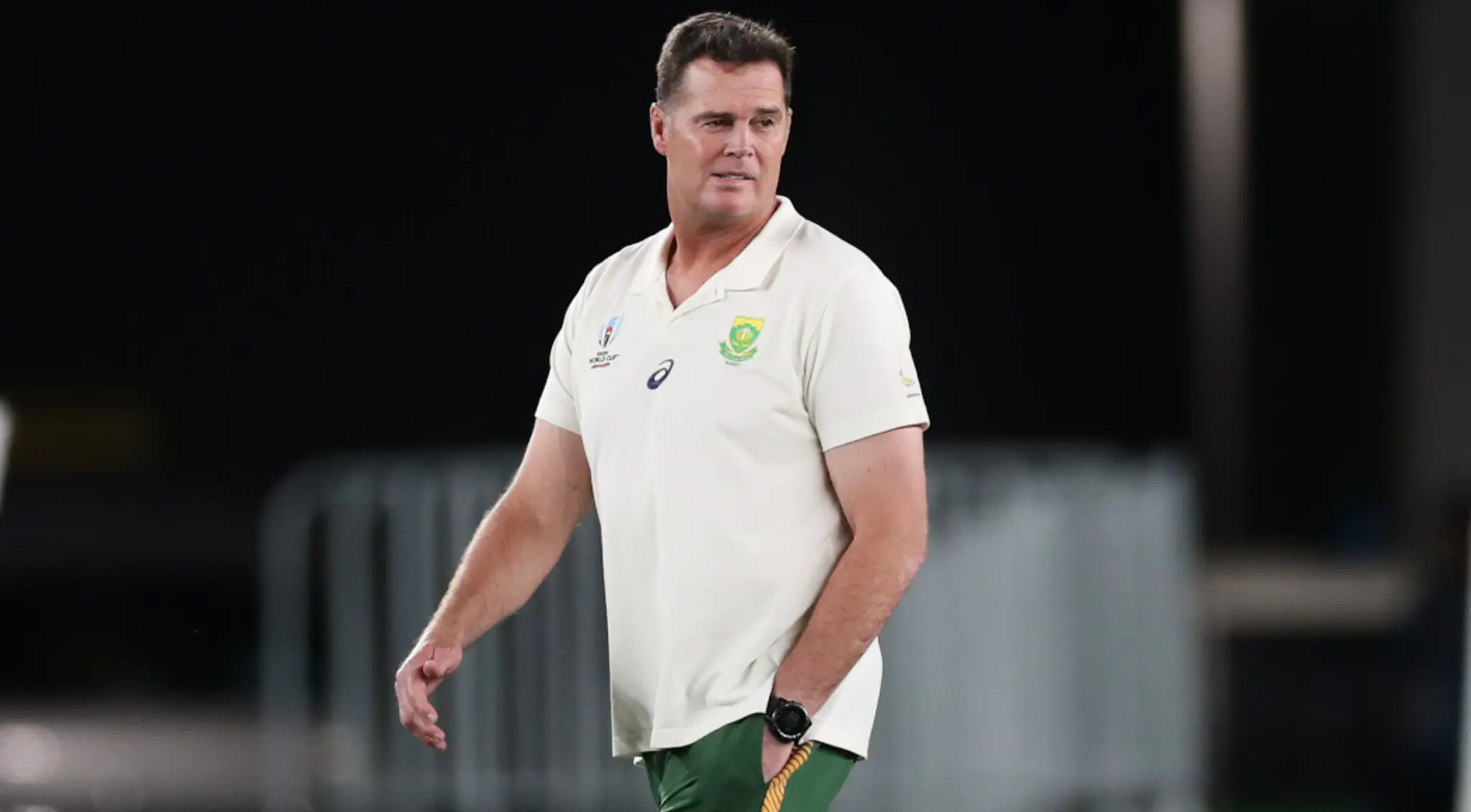Advertisement
Switch to highveld conditions favours Japan but Boks are ready

Springbok coach Rassie Erasmus believes the conditions at the World Cup are starting to favour Japan’s playing style but he says his team is ready to meet the challenge.
Japan’s running, handling skills and energy came to the fore in their impressive 28-21 win over Scotland in the final game of the pool stage, and with Scotland also showing some ability to handle the ball, it highlighted the move away from the humidity that effectively turned earlier fixtures at this World Cup into wet weather games.
In that sense Erasmus knows that his team faces a very different challenge to what they faced when they played Japan in a warm-up game two weeks before the kick-off to the tournament. On 6 September the humidity was particularly dire according to those who were there, and bore no comparison to the current conditions that are shifting fairly quickly to what you’d expect in autumn.
Typhoon Hagibis’ intervention in the World Cup last week and at the weekend notwithstanding, the conditions are likely to become less of a talking point.
“We were told ahead of the World Cup that there would be a day in October that would see a sudden change where the humidity becomes a lot less, and it feels like we have now passed that point,” said Erasmus.
“We are now dressing up more, wearing warmer clothes, and that is a sign that the conditions have changed. We were expecting it though and we have prepared for it.”
SHIFT IN THE WAY THE GAME IS PLAYED
The ball in play time and continuity aspect in Sunday night’s entertaining clash in Yokohama was a big improvement on what we had seen previously in the tournament and Erasmus agreed that there would be a shift in the way the game is played. He wasn’t shy to admit that the conditions now favour Japan a lot more than they did in the warm-up game, which the Boks won 41-7 by employing a game plan heavily accented on forward and physical control and tactical kicking.
“It does favour Japan more now as it suits their game, but we are not new to playing teams who excel playing running rugby in dry conditions,” said Erasmus.
“We do it every year when we play running teams like the All Blacks and Australia in Pretoria and Johannesburg. This will be no different to that. We are used to playing those teams on a dry surface and with a dry ball and now that the conditions are changing to similar conditions the challenge will be the same as then.”
Erasmus said that he wouldn’t be asking his team to come up with an identikit of the warm-up game template, when his side bombed the Japanese back three into submission.
“I know Jamie Joseph and Tony Brown are way too clever as coaches to think that we could get away playing the same game, regardless of whether the conditions since then have changed or not,” said the South African national director of rugby.
'LEARNED A LOT ABOUT US'
“They would have learned a lot about us since that game and they would have picked up things in that game that they would have worked on. We will have to play differently against them as the Japan teams have very adaptable coaches, that is one of the big strengths of their game.”
Erasmus cited the difference in the game-plans Japan employed in the respective games against Samoa and Scotland as an example of what he was talking about.
“The Japan game was very different against Scotland compared to their game against Samoa. They kicked the ball 32 times against Samoa, and only eight times against Scotland. That shows that they are very good at analysing their opposition and adept at switching their playing style to meet the different challenges that they face.
“One of the big Japanese strengths is their ability to play to and maximise their own strengths while pinpointing the weaknesses in the opposition. We know we face a big challenge as coaches as we are up against a clever team that is well coached.”
Advertisement
